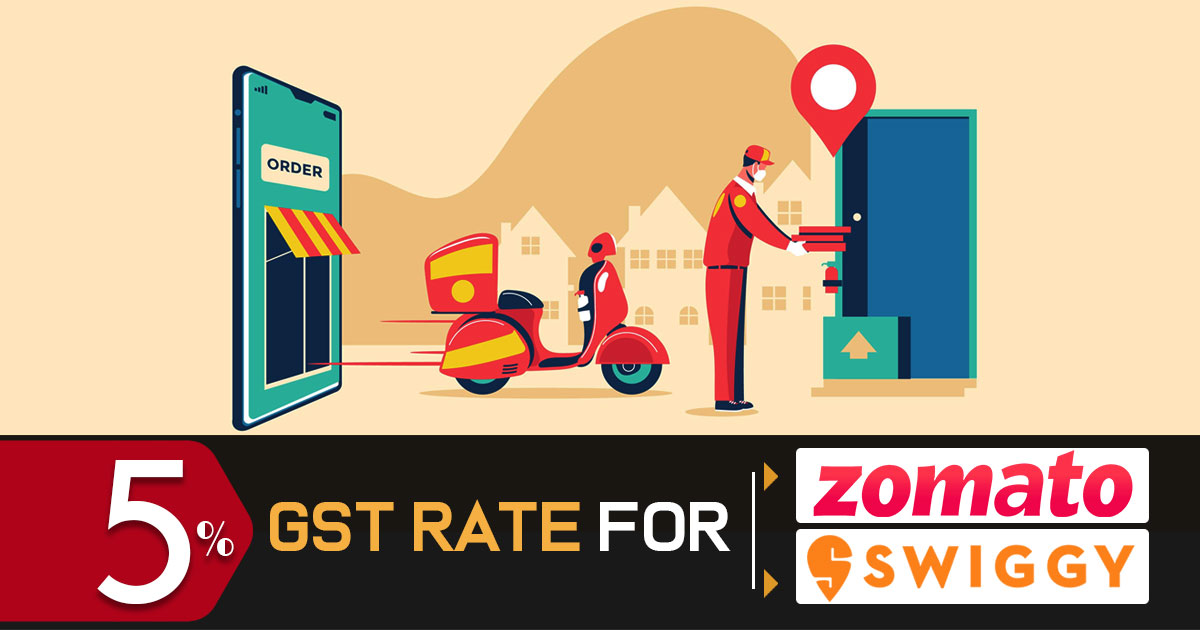
The GST department seems to talk about the proposal to levy 5% GST on the food delivery applications like Swiggy, Zomato i.e upon the supplies built through them stated by the GST 45th council meeting. The discussed proposal to build the delivery platform subject to filing the GST is one of over four dozen proposals which was opted by the department at its meeting in Lucknow held on 17th September. If permitted, then the applications shall be given some time to do the revisions in their software to permit the tax to get charged.
Once the permission is given via a GST official then the food delivery apps shall need to receive and deposit the GST with the government in place of the restaurants towards the deliveries done through them.
There shall be no other tax burden on the end consumers. Under the approximations, the tax loss to the exchequer is because of the mentioned reporting via food delivery firms stands on Rs 2000 cr over the past 2 years. Beneath GST these applications are enrolled as a Tax collected at source (TCS). The cause to design the proposal was that there is no essential enrollment check through Swiggy or Zomato and there were unenrolled food centers that provide food through these apps.
Despite lower tax rates since the food delivery is of higher volumes and the tax theft is also executed, the council mentioned. The return analysis furnished through the delivery apps and the restaurant services towards the state Haryana mentioned that for Zomato the taxable turnover for suppliers in which the TCS was getting deducted was much larger than the supplier declared turnover.
Thus there is theft of the tax. Similar to the case of Swiggy, there was a difference in the taxable turnover towards the suppliers in which TCS deducted through the app was greater with respect to the turnover mentioned through the restaurant suppliers. As per the recommendations of the food delivery apps accumulated and saving GST through the government will be set prior to GST, the council stated.









